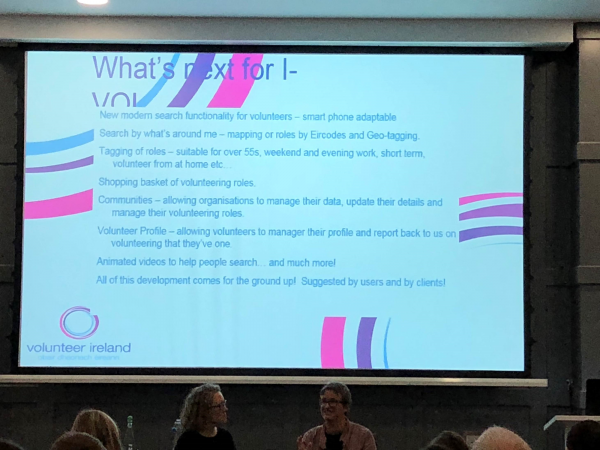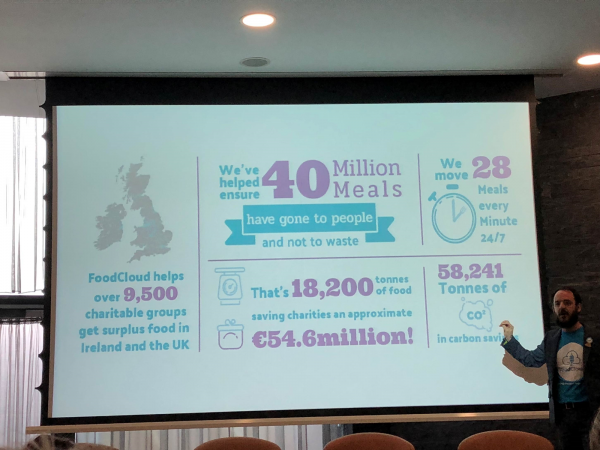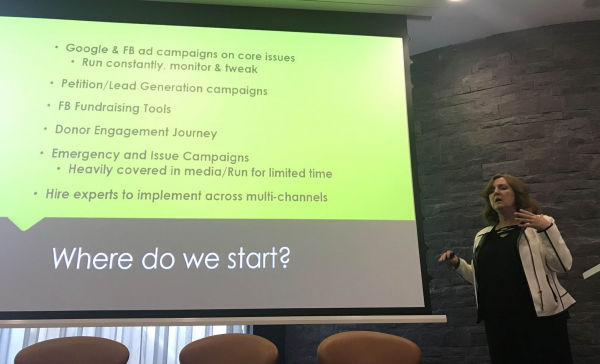Digital Transformation for nonprofit organisations
Last October, I had the great pleasure of participating in an afternoon panel on "What's next for digital transformation in nonprofit organisations."
The "Future Waves" conference was brilliantly organised by Brian Walsh and team from The Wheel (www.wheel.ie)
A common trend there for non-profits (given the naturally diverse activity) is to use digital data to support compelling storytelling of the wellness benefits of non-profit activity for volunteers, donors and participants, leading to further fundraising and support from health care organisations and governments, among others.

The other major point was that digital complements rather than replaces traditional non-profit marketing/case management and human behaviour.
In simple terms, digital just means the non-profit organisations can be more responsive to a wider audience, even engaging with global donors, previously available on a very limited basis. Digital also means the possibility of better quality data, leading to better reporting, insight, planning, communication and action. By more responsive, I mean non-profits can grow their community engagement faster, with immediately available cloud computing scale. They can also grow more efficiently, in response to planned or emergency events. Then the digital instrumentation or reporting on web site visitor activity, social media and donor and volunteer transactions means they can provide much more in depth insights, decision making and compelling communication of benefits to all engaged parties and non-profit activities, leading to greater support, donations and funding.
Some of the larger non-profits at the conference are even more digital and engaged in digital transformation than some of our commercial customers, perhaps thanks to a true passion for doing more with greater efficiency and urgency.
It was a great day and the panel went very well, fabulously moderated by Jim Breen.
Thanks to Femi John Atoyebi for this photo tweet of our panel.

www.Salesforce.org director Chris Atwood on the panel was very supportive of my Microsoft Digital Advisory role and our digital approach. We agreed on a wide range of points for digital transformation in non-profits.
Also on the panel was Joan Mulvihill (MS/Dynamics fan too) who is powerfully positive energy for any panel.
Niall Dennehy from Aid Technology covered blockchain too!
We were joined by Denisa Casement (more below) and so we had a positive collaborative experience across the panel which was great for the audience.
For the earlier talks I attended, first up (below) was Tricia Nolan from Volunteer Ireland and some good action points on the following slide from one of many great insights.
Some good ideas for our own Microsoft in-house volunteering platform there too.
Volunteer Ireland use charting of volunteer data to present impact stories and raise more insight based funding.
Similar goals can be attained with www.m-hance.com and Dynamics365. Thanks to Darrell Brislane there for connecting me with the opportunity to join the panel. Typetec were also there, helping non-profits reimagine their business through digital transformation, at scale, in the cloud.
Next up is a slide from Daragh Doyle at FoodCloud with some good stats. He also had a request for audience participation in his collation of food cloud sources. See this tweet for more.
Apparently, McDonalds (in Ireland) moves 24 meals per minute compared to FoodCloud's 28 above.
And lastly, here’s Denisa Casement https://twitter.com/DenisaCasement on her points about how to get started in Digital for Non-Profits.
Denisa's other major point, among many in a highly valuable talk, was that digital complements rather than replaces traditional non-profit marketing/case management/human behaviour.

Once again, digital means any organisation (or enterprise) can be more responsive to a wider audience with better reporting/planning/action leading to a deeper relationship with all concerned.
As Brian (above) has said, if digital means data, then it performs a crucial function in any organisation. How do we highlight the importance of digitisation to nonprofit (or "for profit") leaders? We still need the existing non-profit skills for the new digital tools. Those tools are readily available but many organisations do not have those digital skills. How can the non-profit sector combat this on a large scale?
I would answer, that in my experience of more commercial sectors, open community leadership sharing of digital approach and lessons learned is enormously valuable to move the community forward as a whole.
Future Waves will return in 2019, perhaps in two locations, so what would you like to learn?
